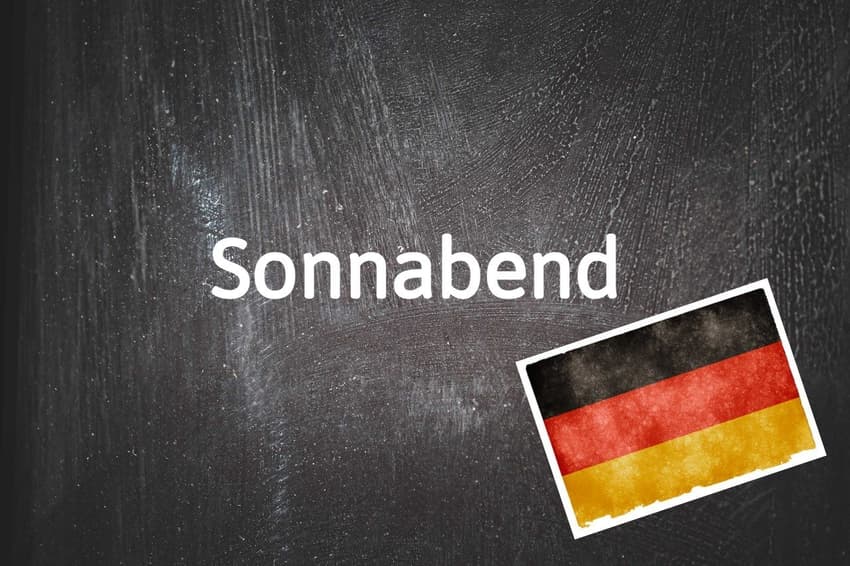German word of the day: Sonnabend

Not knowing this word could really mess up your weekend.
Why do I need to know Sonnabend?
Because it’s a commonly used word in some parts of Germany to refer to Saturday, even though it sounds more like the German word for Sunday (Sonntag).
What does Sonnabend mean?
Sonnabend is another word for Samstag in German and means "Saturday".
It's used mainly in eastern and northern Germany and, in the former GDR, Sonnabend was more or less the only word for "Saturday" in use; while the majority of West German citizens used Samstag.
But the origin of Sonnabend goes much further back than the post-war period. It is, in fact, a very old Anglicism which originated in the early middle ages.
Legend has it that the word came from an English missionary named Boniface, who came to Germany in the early 8th century to convert the Germanic tribes in Friesland, Hesse, Thuringia and Bavaria to Christianity. He brought with him the Old English word sunnanaefen, which initially meant the evening, but soon came to mean the whole day before sunnandaeg (Sunday).
The use of the word Sonnabend became widespread, mainly in northern and central Germany.
Use it like this
Die Geschäfte sind an diesem Sonnabend geschlossen
The shops are closed this Saturday
Sonnabend ist mein Lieblingstag in der Woche
Saturday is my favourite day of the week
Comments
See Also
Why do I need to know Sonnabend?
Because it’s a commonly used word in some parts of Germany to refer to Saturday, even though it sounds more like the German word for Sunday (Sonntag).
What does Sonnabend mean?
Sonnabend is another word for Samstag in German and means "Saturday".
It's used mainly in eastern and northern Germany and, in the former GDR, Sonnabend was more or less the only word for "Saturday" in use; while the majority of West German citizens used Samstag.
But the origin of Sonnabend goes much further back than the post-war period. It is, in fact, a very old Anglicism which originated in the early middle ages.
Legend has it that the word came from an English missionary named Boniface, who came to Germany in the early 8th century to convert the Germanic tribes in Friesland, Hesse, Thuringia and Bavaria to Christianity. He brought with him the Old English word sunnanaefen, which initially meant the evening, but soon came to mean the whole day before sunnandaeg (Sunday).
The use of the word Sonnabend became widespread, mainly in northern and central Germany.
Use it like this
Die Geschäfte sind an diesem Sonnabend geschlossen
The shops are closed this Saturday
Sonnabend ist mein Lieblingstag in der Woche
Saturday is my favourite day of the week
Join the conversation in our comments section below. Share your own views and experience and if you have a question or suggestion for our journalists then email us at [email protected].
Please keep comments civil, constructive and on topic – and make sure to read our terms of use before getting involved.
Please log in here to leave a comment.